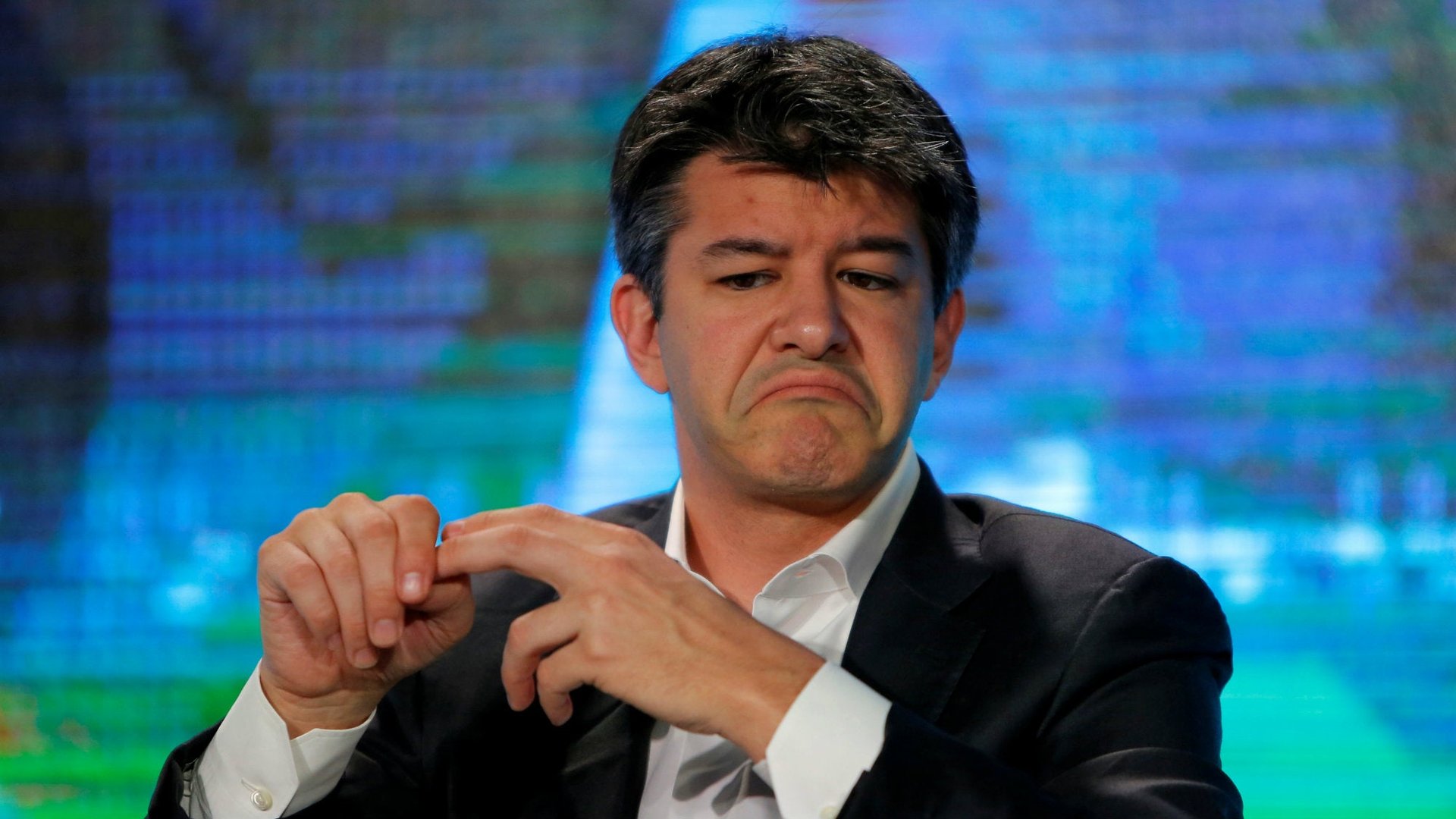Ten years ago a Stanford professor defined an “über-jerk”—and it sounds a lot like Uber’s management
Former attorney general Eric Holder’s report on Uber’s corporate culture has not been made public yet, but news reports in recent months preview some of the allegations that may be included: an allegedly discriminatory corporate culture, disregard of local regulations, sexually inappropriate internal communications, egregious mishandling of the private medical records of a woman raped by an Uber driver, and CEO Travis Kalanick’s snarling at a driver who questioned the company’s pricing structure.


Former attorney general Eric Holder’s report on Uber’s corporate culture has not been made public yet, but news reports in recent months preview some of the allegations that may be included: an allegedly discriminatory corporate culture, disregard of local regulations, sexually inappropriate internal communications, egregious mishandling of the private medical records of a woman raped by an Uber driver, and CEO Travis Kalanick’s snarling at a driver who questioned the company’s pricing structure.
Each of these well-publicized cases has shared the common thread of one or more executives acting boorishly. Inappropriately. To put it coarsely but succinctly—like an asshole.
In his 2012 book Assholes: A Theory, philosophy professor Aaron James argued that the class of persons we instinctively recognize as “assholes” distinguish themselves from run-of-the-mill jerks via an inflated sense of entitlement. Another answer can be found in The No Asshole Rule: Building a Civilized Workplace and Surviving One That Isn’t—Stanford University management professor Bob Sutton’s definitive treatise on loathsome individuals in the workplace.
The typical workplace tolerates boorish behavior, Sutton argues, but only up to a point. Eventually there comes a moment at which that kind of conduct becomes so egregious that an individual crosses a sort of asshole Rubicon and goes from being just an ordinary pain to an archetype Sutton calls at various points a “certified asshole,” a “flaming asshole,” and, presciently, “an über-jerk.”
Writing in 2007—three years before Uber’s beta launch, when Kalanick was still toiling at the file-sharing company Red Swoosh—Sutton described this moment of transformation: “An über-jerk might be crowned after costing the organization a fortune, driving coworkers to the edge of madness, creating horrific PR problems, or exposing the organization to massive legal risk.”
That particular shoe seems to fit: Even before the most recent disclosures regarding former president of business in India Eric Alexander’s abuse of a female passenger’s medical records and the emergence of a crass 2013 email from Kalanick to staff, scandals wiped up to $10 billion off the company’s value, which peaked in February at roughly $70 billion. A number of Uber employees have quit after reports of sexist and abusive behavior allegedly went ignored. A video of Kalanick berating an Uber driver led to social media outrage. And the company faces multiple lawsuits over everything from underpaying drivers to theft of trade secrets, plus one criminal investigation stemming from its evasion of government regulators.
Uber’s board is reportedly considering asking Kalanick to take leave of absence, and will likely accept Holder’s recommendations, which sources say include the resignation of one of Kalanick’s right-hand men, Emil Michael.
In a corollary to the Goldwater Rule, which bars psychiatrists from publicly diagnosing people they have not personally examined, labeling Kalanick or any other Uber employee an asshole from afar is neither fair nor helpful. The CEO has also expressed contrition for the most galling forays into asshole-itude, and he decreed a zero-tolerance policy toward sexual harassment after the allegations became public. In February, he wrote a public apology to the abused driver that stated, “to say that I am ashamed is an extreme understatement.” More recently, he has spoken publicly about taking time off following a boating accident in May in which his mother died and his father was severely injured.
In Adam Lashinsky’s recent book Wild Ride: Inside Uber’s Quest for World Domination, Kalanick attributes his “little moments of arrogance where I say something provocative” to “fierce truth-seeking.” Yet at the same time, he acknowledged that these are also moments where he exercises spotty judgment that is “not good for Uber. It’s not good for me. It’s not good for the people that I’m talking to. It’s bad for everybody.”
“Do I trigger something in certain people that’s related to something that I didn’t do?” Kalanick is quoted as asking. “Or am I an asshole? I’d love to know.” (For the record, he thinks he is not.)
Going forward, Uber executives would do well to abide by Sutton’s maxim: “To avoid acting like or becoming a known asshole, know thyself.” An asshole, Sutton argues, is not something one is, but rather a way one acts. It is in fact possible for an individual concerned about his or her asshole-like tendencies to change problematic behaviors through effort and self-awareness. (For those concerned, Sutton has developed a simple self-diagnostic test—the Asshole Rating Self-Exam, or ARSE.)
It matters not whether we believe ourselves or others to be assholes; it matters how we behave. As Sutton writes, condemnation of assholes “is meaningless—regardless of what you say, what policies you enact, and the best of intentions—unless you treat the person right in front of you, right now, in the right way.” Depending on the actions of Uber’s board, company executives going forward may not have any other choice.